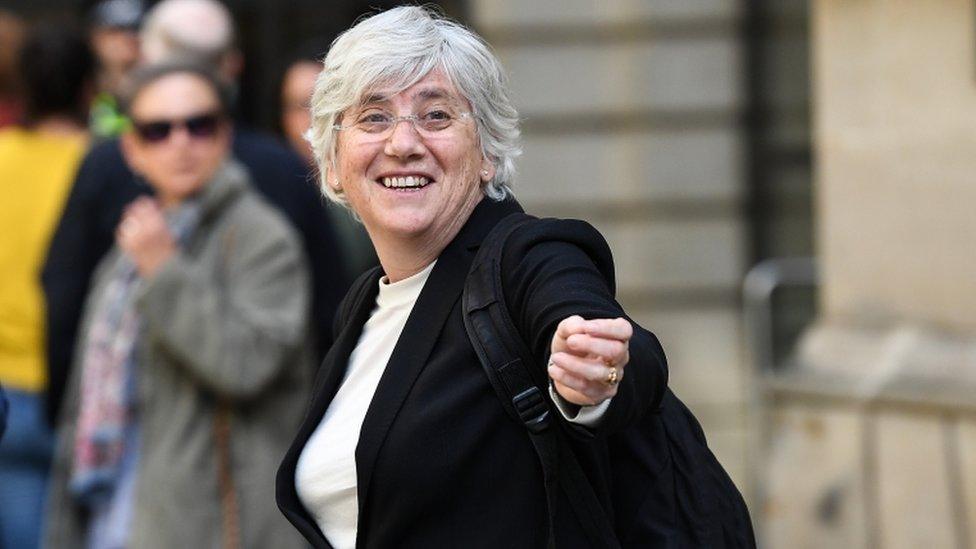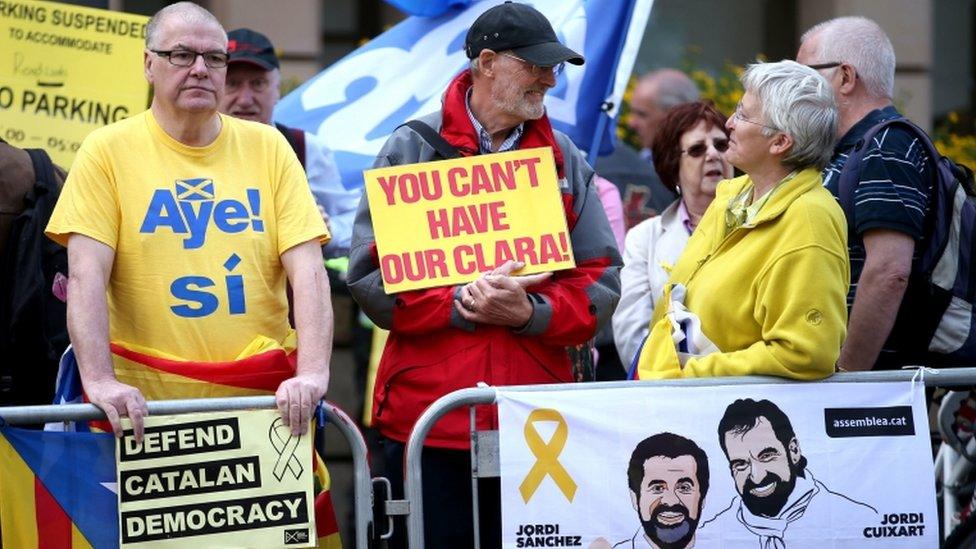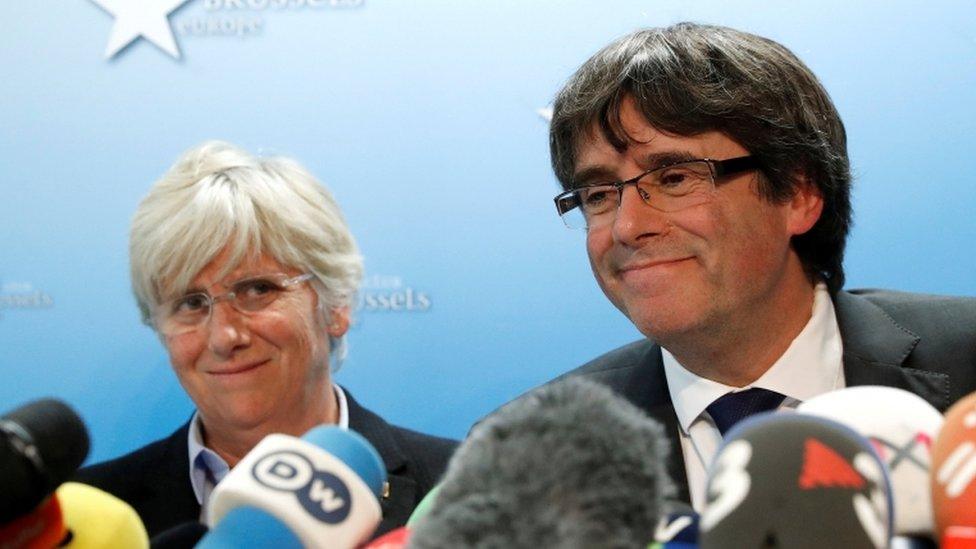Former Catalan minister back in court
- Published

Prof Clara Ponsati has been working at St Andrews University
A former Catalan education minister has returned to a Scottish court as she continues her legal battle against extradition to Spain.
Prof Clara Ponsati "utterly refutes" charges of violent rebellion and misappropriation of public funds.
The charges relate to her role in Catalonia's independence referendum last year, which was ruled illegal by the Spanish courts.
She could face up to 33 years in prison if she is extradited and convicted.
The St Andrews University academic attended a preliminary hearing at Edinburgh Sheriff Court, at which her legal team lodged its draft legal submissions ahead of a full hearing, due to begin in July.
'Politically motivated prosecution'
A further preliminary hearing was set for 12 June, with Sheriff Nigel Ross QC saying he hoped further information on the legal arguments from both sides would be available to the court by that stage.
The arrest warrant says that the more serious charge of rebellion applies to those "who revolt violently and publicly" for purposes including "declaring the independence of a part of the national territory."
The warrant lays out in detail injuries the Spanish authorities say were suffered by officers of the security forces as they tried to prevent October's referendum from taking place.
The Catalan government says that more than 900 civilians were injured as a result of police action on the day of the referendum.
Speaking outside court after the latest hearing, Prof Ponsati's solicitor Aamer Anwar said the extradition would be fought on "many grounds," including that it was a "politically motivated prosecution".
"To extradite Clara would be unjust, oppressive and incompatible with her human rights," he said.

Supporters of Prof Ponsati gathered outside the court ahead of the hearing
Mr Anwar also claimed that Spain was facing its "greatest crisis since the dark days of General Franco" and called for the "unconditional release of all political prisoners and withdrawal of the European Arrest Warrants".
Prof Ponsati was initially arrested by Scottish police in March after a warrant was issued by the Spanish authorities, before being released on bail.
Former Catalan president Carles Puigdemont was arrested in Germany on a similar warrant. He has also since been released on bail.
Who is Clara Ponsati?

She fled to Brussels with Carles Puigdemont following the Catalan referendum
Prof Ponsati had been working as the director of the School of Economics and Finance at the University of St Andrews since January 2016, before being appointed as the Catalan government's education minister in July of last year.
She returned to work at St Andrews earlier this year, having been in Belgium since fleeing Spain with Catalonia's ex-leader Carles Puigdemont and three other former cabinet members following an unsuccessful bid to declare independence from Spain in October.
A Spanish judge issued arrest warrants in March for Prof Ponsati and the other fugitive politicians, including Mr Puigdemont, who was detained by police in Germany.
How likely is it that she will be extradited?
In almost all cases, there is a requirement that the allegations would amount to a criminal offence were it to have occurred in the UK.
Prof Ponsati's legal team could argue that rebellion is not a specific criminal offence in Scotland - although there is a crime of treason, which covers disloyalty to the Crown.
The extradition request could also be defeated if Prof Ponsati successfully argues that it is politically-motivated.
But extradition lawyer Karen Todner told BBC Scotland it is rare for European requests to be refused for this reason, because "as part of the European Union we are supposed to believe that all requests are fair and proper".
Regardless, the legal process is likely to take several months and could be challenged all the way to the High Court.